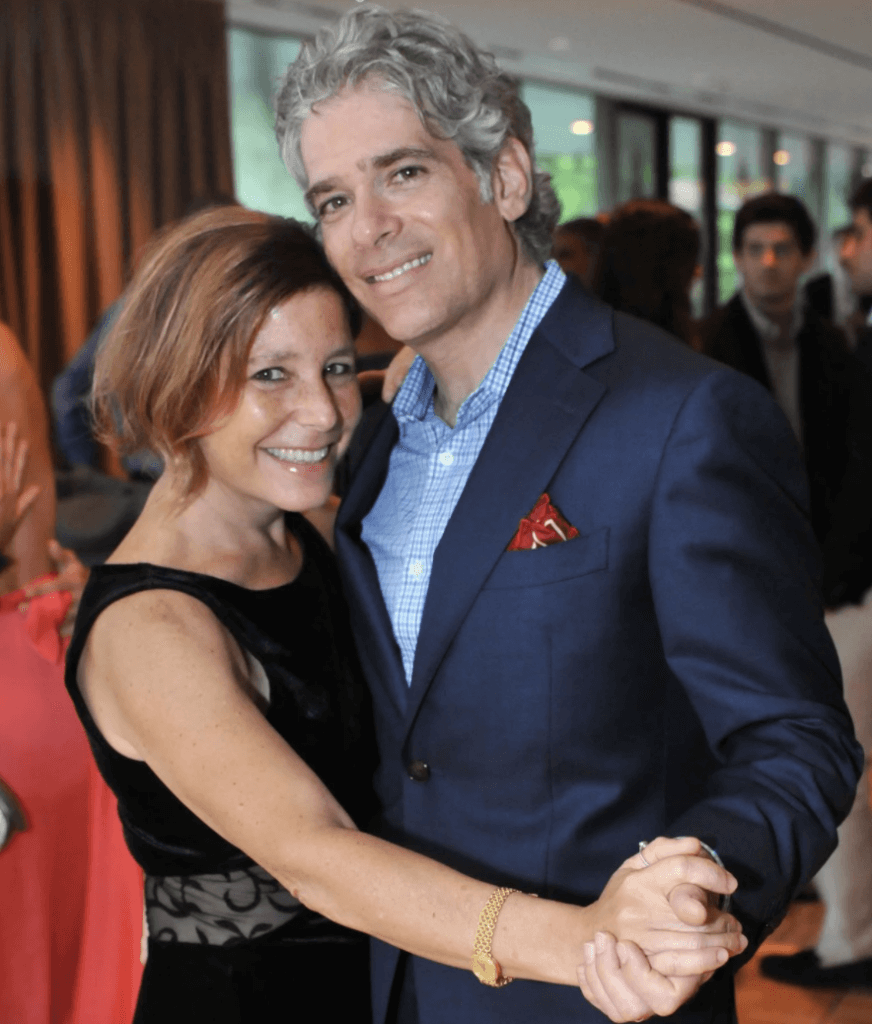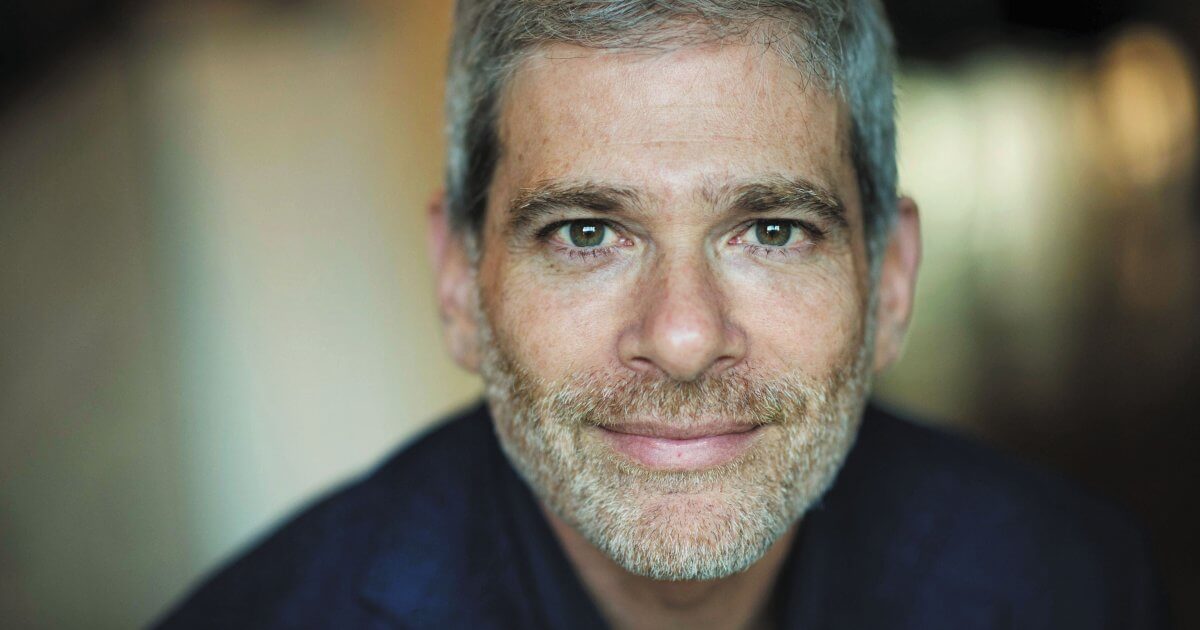Jason's Caregiver Story
- Chicagoan and father of three Jason Rosenthal lost his wife, Amy Krouse Rosenthal, to ovarian cancer in 2017.
- In a New York Times essay that went viral, Amy wrote about their love story, and left a blank space in the essay for Jason to write a new love story with someone else, after she was gone.
- In an exclusive interview with SurvivorNet, Jason spoke about Amy’s early symptoms, her treatment path and his role as a caregiver.
His late wife, author Amy Krouse Rosenthal, wrote a viral Modern Love essay published in The New York Times shortly before she passed away from ovarian cancer. The essay was titled “You May Want to Marry My Husband,” and it was read by more than 5 million people.
Read More

In an exclusive interview with SurvivorNet, Jason shares his story of love and loss.
Amy’s Ovarian Cancer Diagnosis
Amy was diagnosed with ovarian cancer in September 2015. “My wife Amy Krouse Rosenthal who had a long battle which is not my favorite word but a long process of experiencing treatment after being diagnosed with ovarian cancer in September of 2015,” says Jason.
Related: Ovarian Cancer Symptoms Can Be Hard to Spot
“Amy was out of town on a business trip and she said, ‘I’m not feeling so great in my stomach,’ and ‘I called my family doctor and she said that you should pick me up at the airport and take me to the hospital to get this checked out.’ And that was very unusual for Amy,” says Jason. “She was one tough cookie. I really don’t remember her complaining about much more than a headache. It was unusual but I thought, eh, appendicitis or something.”
“‘Let’s go get it checked out,’ we said. And that was when our world completely changed and we just got whacked upside the head with the detail that there was a tumor, that it was likely malignant and had spread a little bit.”
Ovarian Cancer: The Cancer That Whispers
Amy’s Treatment Plan
Jason and Amy got to work after her diagnosis. “We did a ton of research and reached out to our wider community and found the two best ovarian cancer doctors were right here in Chicago and interviewed both of them, and basically made a plan to have the surgery right away.”
Related: Ovarian Cancer: Considerations for Surgery
“She had this incredibly lengthy and detailed surgery, which I could go into, but the point is that it was a nine or 10-hour procedure,” he says. “And they felt like they had gotten a lot of it out, but we’d have to go through the treatment of 16 weeks of chemotherapy.”
Coping with the Caregiver Role
Despite undergoing surgery and chemo, Amy retained her zest for life through cancer treatment, Jason says.
“Amy was unbelievable because she was finishing up this book [Textbook Amy Krouse Rosenthal] which she’d written, even during chemotherapy, this woman was working 14, 16 hour-days. But it was really inner core what she loved doing, was to write and work on her books and things. And that really got her through that period of time and yes there was a very, very brief period of remission, but then things, unfortunately, came back,” he says.
Related: How to Be a Better Caregiver for Your Loved One with Ovarian Cancer
Jason explains how becoming a caretaker to Amy became the highest priority at that time.
“Because you become this caretaker… at least in my situation, that’s what we decided, and your focus really is 100% on that person that you love so much and you forget a little bit about yourself,” he says. “I discovered that without really knowing it, that’s what was really going on with me, and so I would encourage someone going through that process to check in with yourself, both emotionally, and physically honestly.”
Jason says that the diagnosis impacted him in a holistic way.
“I was someone who exercised a lot and cared about that because it felt so good, but then you just drop everything. And you’re singularly focused,” he says. “I think giving yourself a little bit of attention and time is very, very important, because you, therefore, become a better person for your spouse. Get some sleep, and things like that.”
I think giving yourself a little bit of attention and time is very, very important
Jason says that having a strong support network was helpful, too. “I was pretty fortunate because I have a wonderful, wonderful group of friends, both friends of ours, and friends of mine, from my entire lifetime.”
“Both with my mother, but also with my mother-in-law who became a sort of my partner in taking care of Amy, along with my daughter who deferred her first year of college for a little bit, and stayed here with us. That trifecta of me, my mother-in-law, my daughter, and of course the boys, but the boys were Herculean. They would literally come in almost every weekend from Atlanta, and then California. It was unbelievable.” Their three kids, Paris, Miles and Justin, were all out of the house by that time, in their late teens and early 20s.
Become a Single Parent After Cancer Loss
When asked about adapting to single parenthood after losing Amy, Jason says, “One of the things that I really appreciate now with some distance and I talk about this with people is Amy and I had a pretty decent amount of time to have some really detailed conversations about what it was going to be like for me moving forward. And just as an aside, I encourage people to have those conversations now when they’re younger.”
The number one thing that I just had so much anxiety over, was: How was I going to do this without her?
“You never know what’s going to happen. Not everyone’s going to have that opportunity like we did to spend some time talking about it. Do it when you’re young and healthy,” he says. “Anyway, that was the number one thing that I just had so much anxiety over, was how was I going to do this without her?”
Related: "Therapy Saved My Life": After Losing A Loved One, Don't Be Afraid To Ask For Help
“What she said to me in theory, specific detail, was, ‘Yes, of course you can’t replace a mother, but you can’t replace a father either, and you have a great relationship with each one of these kids, and you’re going to be okay.'”
Learn more about SurvivorNet's rigorous medical review process.


